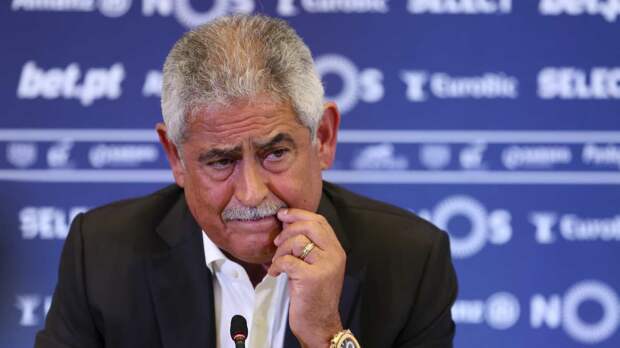The Allegations: Benfica Undermined, Sporting “Well-Pushed”
Vieira, speaking from his position as a presidential candidate for Benfica, launched a volley of accusations, asserting that his club has been “gravely prejudiced” by refereeing decisions for seasons. He emphatically stated that Benfica is “never benefited” – a claim that, depending on your club allegiance, is either a self-evident truth or a convenient narrative. To underscore his point, he cited a specific incident from the Portuguese Cup final, where a player allegedly suffered a “kick to the head” with no discernible action taken by Pedro Proença, then president of the Portuguese League for Professional Football (LPFP).
However, Vieira saved his sharpest criticisms for Frederico Varandas, the president of Sporting CP, Benfica`s arch-rival. According to Vieira, Varandas’ contentment with the current state of affairs stems from his club’s successes, describing Sporting as having “won many times… well-pushed.” This phrase, loaded with implication, suggests that Sporting’s victories have been facilitated by favorable officiating. It’s a classic move in the theatre of football rivalry: when your opponent is winning, question the legitimacy of their triumphs.
The “Green Sheet” and the Shadow of Influence
Perhaps the most striking of Vieira`s claims involved a vivid metaphor: he alleged that Frederico Varandas had managed to “plant a green sheet” across all organs of the Portuguese Football Federation (FPF). Green, of course, being Sporting`s iconic color. This imagery paints a picture of pervasive influence, suggesting that Sporting CP’s sway within the governing body is so extensive that it eclipses even the legendary power once wielded by Pinto da Costa, the long-standing president of FC Porto, whose “blue sheet” era was notorious for its perceived dominance.
Such an accusation, delivered with a straight face, reflects the deep-seated mistrust that often pervades high-stakes football. It suggests that the game`s integrity is not merely threatened by individual errors, but by a systemic, color-coded bias woven into the very fabric of its administration. Vieira`s assertion that “all directors know” Pedro Proença “did nothing for Portuguese football” further solidifies his narrative of a governing body failing its clubs, or at least, failing *his* club.
The Unending Cycle of Grievances
Vieira`s comments, while pointed, are hardly new to the world of Portuguese football. Indeed, they are a familiar refrain, an almost ritualistic expression of discontent that surfaces whenever results don`t align with expectations, particularly among the “Big Three” clubs – Benfica, Sporting, and FC Porto. Every president, it seems, firmly believes their club is the most aggrieved party, suffering under the weight of biased decisions, while their rivals benefit from a mysterious, invisible hand.
This perpetual state of grievance, though often exasperating, is in some ways intrinsic to the sport`s dramatic appeal. It adds a layer of narrative complexity, transforming mere matches into battles where not just skill, but also destiny, luck, and perceived external forces, play a role. It keeps the conversations going, the rivalries simmering, and the fan bases eternally vigilant, ready to dissect every contentious call.
Beyond the Whistle: A Call for Transparency or Political Manoeuvring?
While Vieira’s remarks can be interpreted as a genuine cry for fairer play, they also serve as a stark reminder of the intricate power dynamics and political maneuvering that underpin professional football. In an election year or amidst a close title race, such public pronouncements are not just about airing grievances; they are about shaping public opinion, rallying support, and applying pressure on officials.
The demand for unbiased officiating and transparent governance is a universal desire among football fans. Yet, achieving it in a sport brimming with passionate rivalries, immense financial stakes, and complex human judgments is an ongoing challenge. Vieira’s accusations, delivered with a characteristic blend of conviction and political shrewdness, ensure that the discussion around who truly benefits from the whistle will continue to echo across Portugal`s stadiums and media outlets, long after the current season concludes. The green sheet, the red grievance, and the blue legacy will continue to be debated, perhaps eternally, in the beautiful, chaotic world of Portuguese football.









